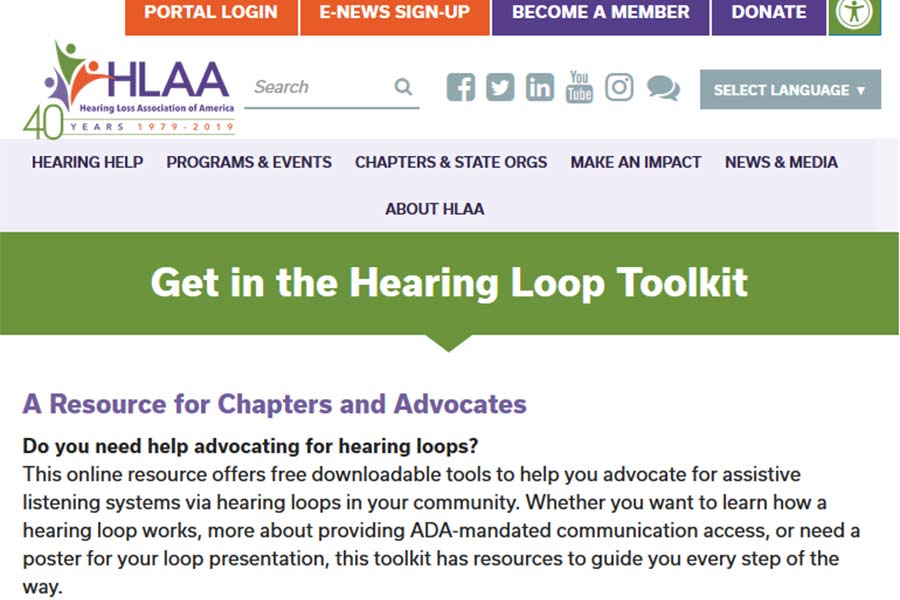We have spoken here on Know several times about induction loop and telecoil technology for hearing aids. While the core technology is very old, it is still outstanding technology with a lot to offer to people who are hearing impaired. The new induction loop drivers that are available are outstanding and loop systems deliver better sound than ever. The main problem with induction loops in the USA is that there aren't nearly enough of them. The HLAA (Hearing Loss Association of America) and grassroots activists across the states are trying to change that. They have an excellent resource page on their site for people who are interested in helping them Loop America. The hearing loop toolkit is an outstanding piece of work.
Induction Loop Systems have been around since 1937 when Joseph Poliakoff filed for a patent in the UK on an Induction Loop Hearing Assistance System featuring what was then called a telephone coil. Over the years, the telephone coil has been shortened to telecoil or just T Coil and induction loops are mostly called loops. As I said earlier, the loop systems might be old, but that doesn't make it any less a fantastic solution for people with hearing loss.
It's really simple, telecoils on hearing aids allow you to connect easily to loop systems. Loop systems provide direct wireless audio input into your hearing aids. No interference, no background noise, just the signal directly from the input, whether that is the microphone a priest is using, the audio system in a theatre, the microphone the cashier is speaking into at the bank or the music from the concert hall stage. The system gives you the very best access to the sound you want to hear. That is really important for people with hearing loss, it gives them the access that they need and deserve.
Hearing aid telecoils can be used wherever a loop system is installed. Loop telecoil systems are everywhere in the UK, Ireland and Europe, they can be found in:
- Churches
- Concert halls
- Theatres
- Universities
- Government Offices
- Banks
- Post Offices
- Taxis (London and New York City)
- Airports
- Museums (for guided tours)
Unfortunately, they are not as popular in the US, although, that is changing and hopefully with the work of the HLAA and others, they will become proliferate. If you would like to drive the change in your community, the toolkit is an excellent place to start. You can also communicate directly with the loop team at GITHLinfo@hearingloss.org . Like us on Facebook by clicking the button below or join our mailing list to keep up with our latest articles.











